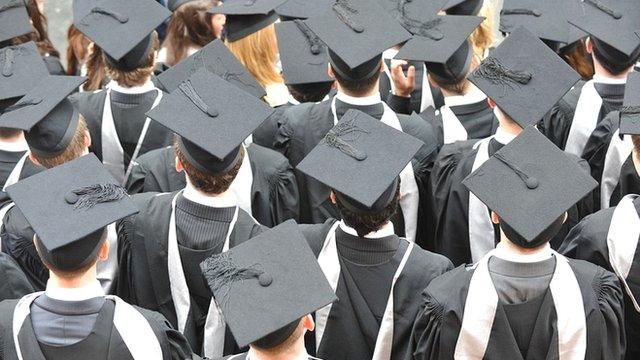Universities warned over potentially misleading claims
- Published
- comments
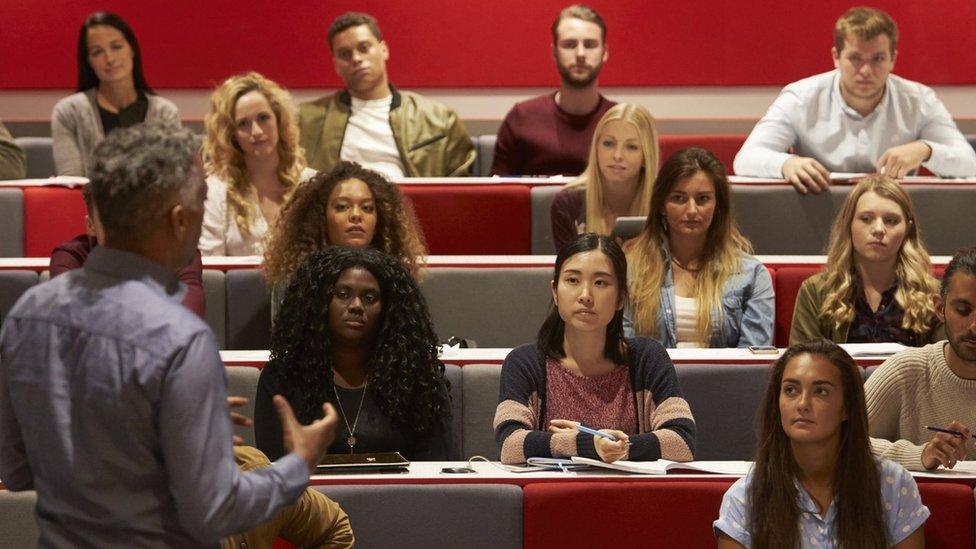
The consumer watchdog says universities need to make sure marketing information is reliable
Universities have been warned against making "potentially misleading claims" in their advertising.
The Which? consumer group says some universities are claiming high status without any "verifiable" evidence.
The Advertising Standards Authority last year told universities they must take down unsubstantiated claims, such as being in the top 1% in the world.
But Alex Hayman of Which? University said some institutions were still "falling short" in their adverts.
With universities beginning another round of recruitment for next year, the consumer group has highlighted concerns about the quality of information for students considering their applications.
'Ultimately... money'
Shakira Martin, president of the National Union of Students, blamed "marketisation" for encouraging universities to make claims to "boost their chances of acquiring higher numbers of students and ultimately more money".
There have been six universities challenged by Which? over their marketing information.
Newcastle University's claim that it was in the top 1% in the world was questioned - and in response the university has taken down the claim, accepting it was "not a particularly meaningful statistic".
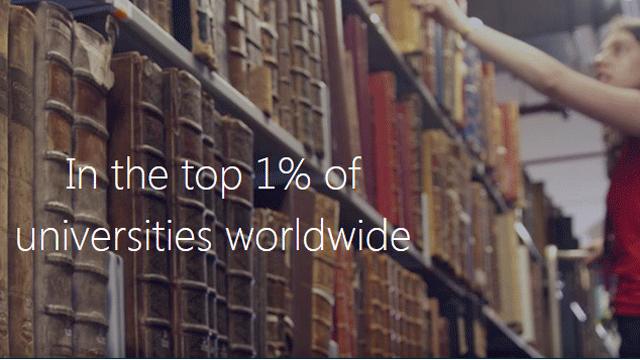
Universities have interpreted league table rankings in their marketing
As with other similar claims, it was an interpretation based on one of the various university ranking lists.
Aston University's assertion it was "ranked within the top 35 universities in all university ranking tables" was challenged.
The university said there was no intention to "confuse prospective students" and this included measures of employability - but to avoid any ambiguity it would be taken down from the website.
Aberdeen University was challenged over the evidence for being "ranked consistently among the world's top universities".
The university says league tables show it is "highly ranked in the world", but says it will "enhance" its website with extra information to clarify the claim.
'Top 3% worldwide'
But Heriot-Watt University rejected queries about it being a "world-leading university for pioneering research informed by the needs of business and industry".
The university said its research and international partnerships with industry made it an institution of "global significance and reputation".
The University of the West of Scotland stands by its claim to be in the "top 3% of universities worldwide" - saying that this is based on the Times Higher Education league table, where it is ranked between 501st and 600th place.
The University of Ulster says its claim to be "in the top 2% of universities in the world is based on the total number of higher education institutions worldwide, rather than the number ranked in each of the global rankings".
Mr Hayman of Which? University said: "It is critical that prospective students can trust the facts that higher education institutions are putting forward."
But he warned that this research raised questions about whether universities were fully complying with the warnings last year from the Advertising Standards Authority.
The advertising standards watchdog says the "vast majority of universities are sticking to our rules".
It added: "We will carefully consider the findings of the report before deciding if any further action is necessary."
"University marketing departments must take this issue seriously," said Nicola Dandridge, chief executive of the higher education regulator, the Office for Students.
"It is essential that universities ensure that their marketing material is accurate, otherwise students will be misled."
- Published15 November 2017
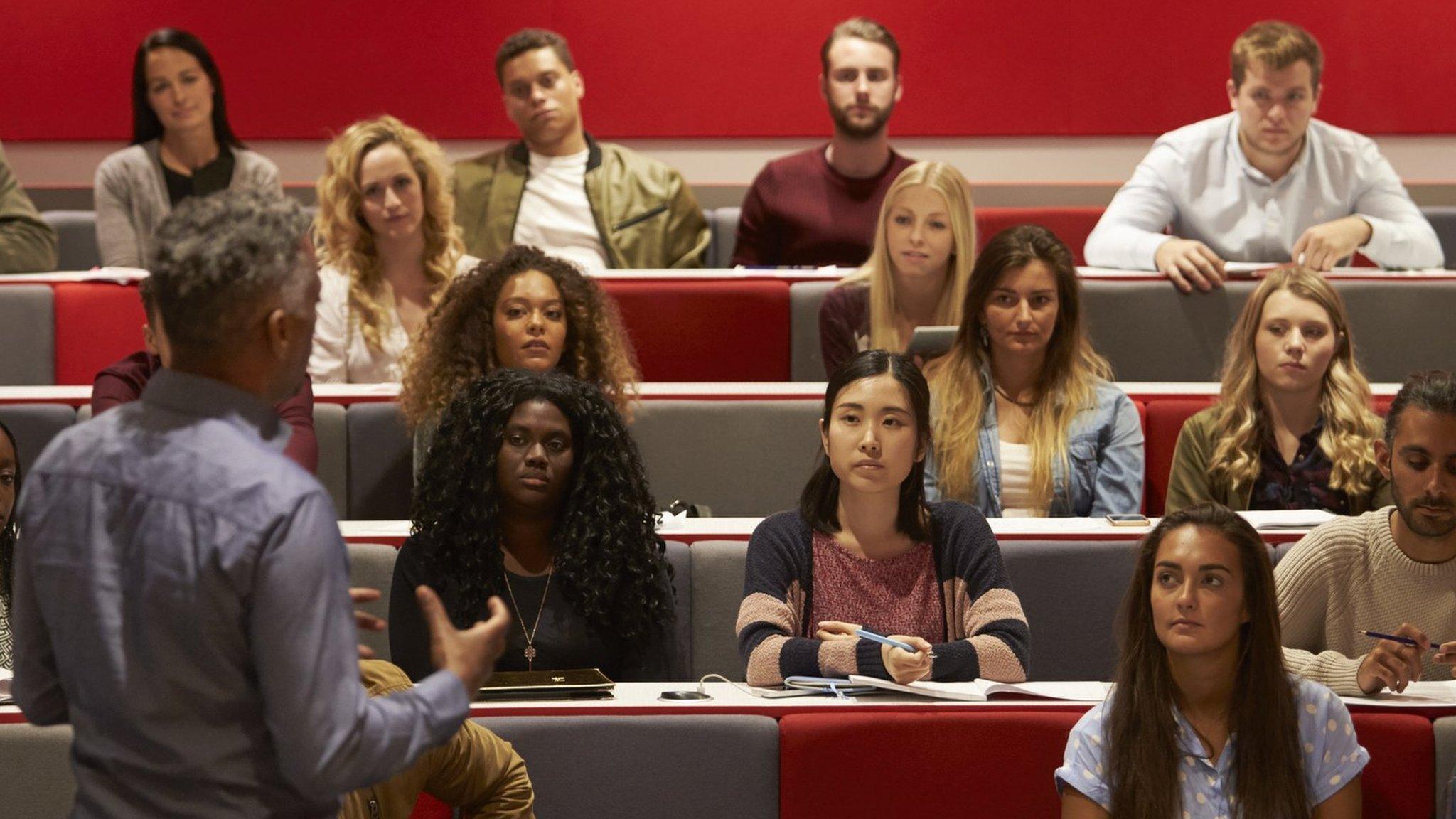
- Published8 June 2017
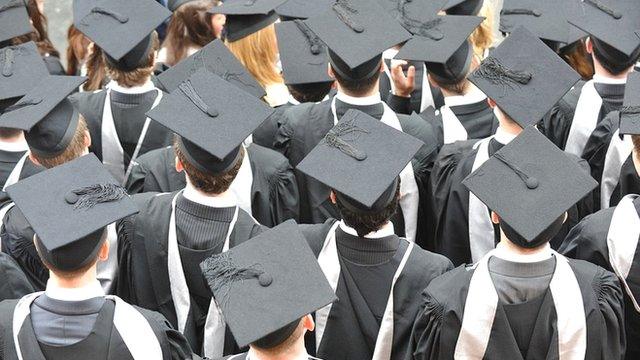
- Published10 November 2017
